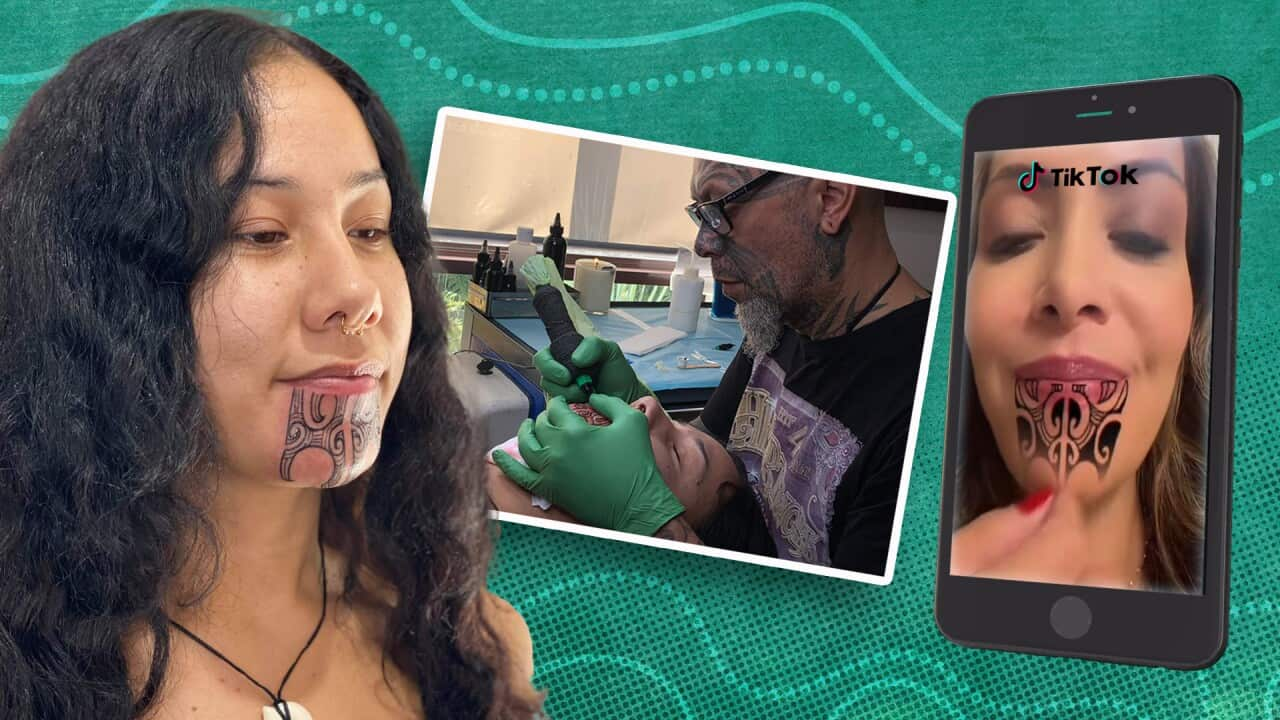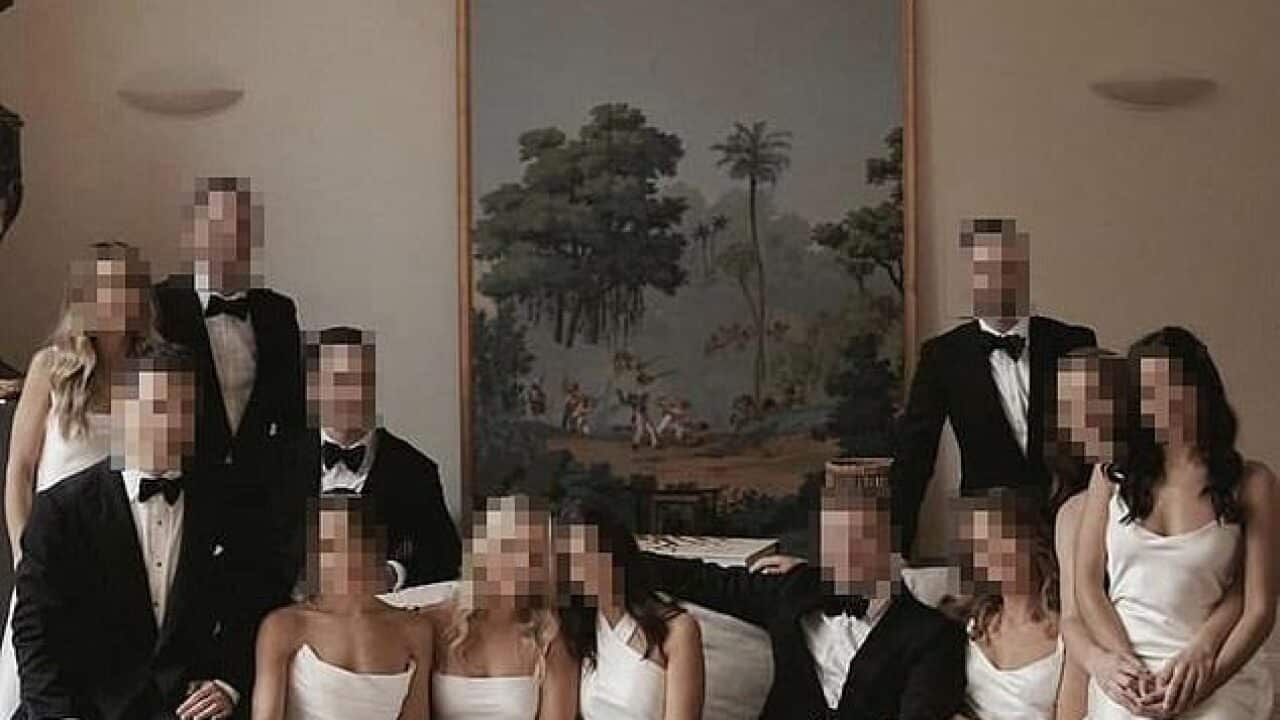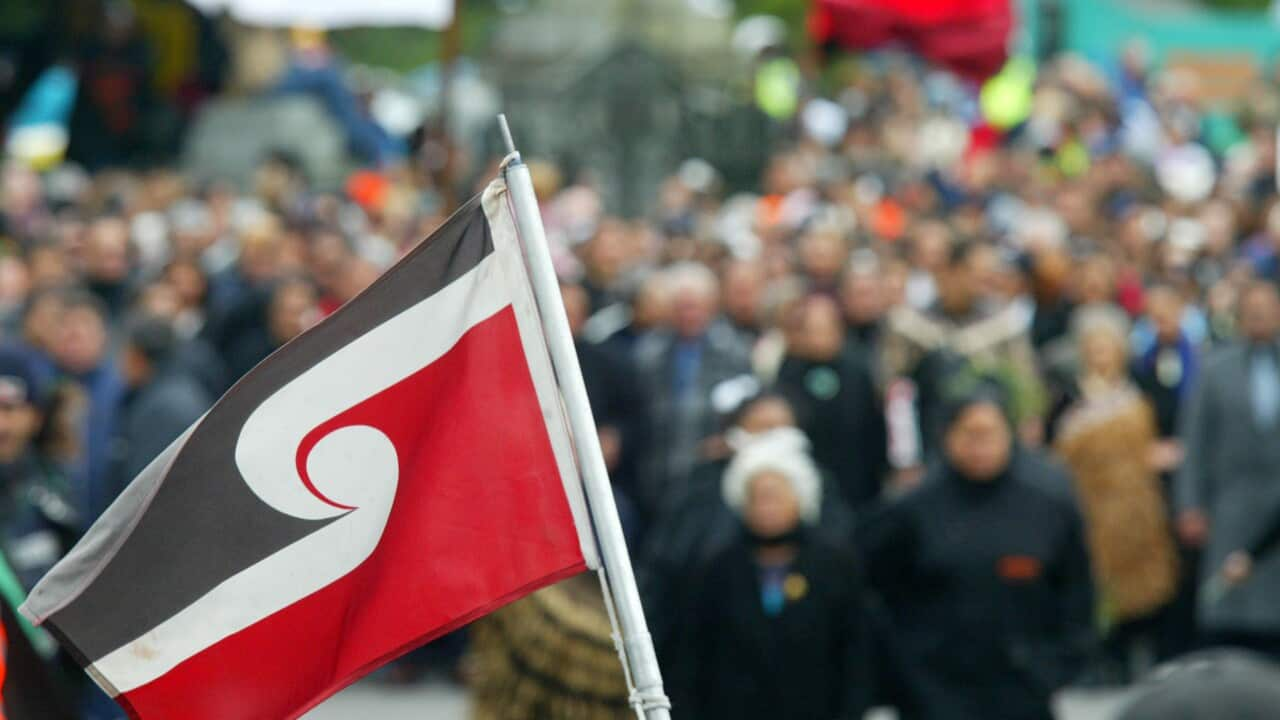Lynia Morseu-Tol was 27 years old when she received her moko kauae.
Having never seen the design that’d be etched into her skin, Lynia laid down and began a journey.
Little did she know that only an hour later, she would feel like an entirely new woman, a new wahine (Māori woman).
“I saw myself for the very first time complete,” she told NITV.
“It was a very surreal experience, almost like a rebirth.”

Lynia receiving her moko kauae from artist Turumakina. Source: Supplied
“Physical manifestation of my identity as a Māori woman – another Māori person could look at me directly and see that I am the eldest sister and a lot more information just by the design,” she said.
“It is not something that is earnt . . . it’s our birthright and something that is only worn by Māori women.
“Every moko kauae that is upon a wahine on her chin is unique to her.”
For Lynia, receiving her moko kauae felt like a powerful act of reclamation.
“It’s a statement of reclamation, reclaiming who I am, what was taken from me, my grandmother and her grandmother before her. Reclamation of culture, and who I am,” she said.
“It’s a pure, very traditional and cultural experience of taking back something that was stripped of your people a long time ago.”
Lynia has had her moko kauae for almost two years, and says that now, when she spots her reflection, she feels like her ancestors are staring back at her.
A 'mutation' of her moko kauae
Lynia is a successful social media content creator, boosting a following on TikTok of just over half a million people.
One day, while working on content she got a concerning message.
“Hey, I just created a Māori filter, I am so far away from this, but you inspired me. Please check, thanks,” it read.
Confused, Lynia took to the creator’s page and found a filter that placed a “mutation” of her moko kauae on the face of the user.

A screenshot of the now-deleted tiktok filter that is based on Lynia's moko kauae. Credit: Tiktok
She messaged back saying the filter wasn’t ok, giving reasons why it was inappropriate – noting it was “cultural appropriation at its finest” and asking for it to be deleted.
After two hours of waiting Lynia posted her own tiktok about the filter, which she says “shot through Māori tiktok".
Three hours later the filter was deleted.
But Lynia never received an apology from the creator or even a reply.
Offensive and dangerous
Lynia explains she usually gets one of three reactions from people, confusion, interest or want.
“Something that hurts me a lot is that there are people out there that are so easily willing to say something is pretty and take it, because they can,” she said.
“There’s no thought there, there’s no empathy there and no understanding.
"There’s a point where people go from uneducated to be doing dismissive.”
And for those who’ve assured Lynia the appropriation of her markings is “flattering”, she assures them it is far from it.

Lynia and her partner after she first saw her moko kauae. Source: Supplied
She knows stories of non-Indigenous people getting cultural markings and getting seriously ill.
“Our markings, our moko kauae, they come with linage. They come with a beginning, a story, they are cultural . . . it’s not just a tattoo,” she said.
“We safeguard our markings, but it’s also about keeping people safe. You don’t walk into something you don’t have any connection to because there are dangers.
“Our people are deeply spiritual so spiritual dangers are very much part of it.”
Protecting culture online
Lynia is one of the many Indigenous content creators trying to turn the tide on cultural appropriation.
She’s also a loving wife to an Aboriginal man, and a mother to her eight-year-old son, Duke.
For Lynia, standing up for her culture is more than a job, but is a responsibility that comes with being a wahine.
“Things like this have always happened, and will always happen,” she said.
“What we can do is speak against it and make people realise there are consequences to their actions.
“There were grandparents of mine and many other Māori who were sacred to speak our language . . image that before you go and get cultural tattoos just because they’re pretty.”













